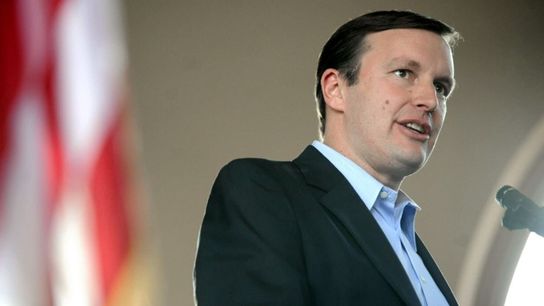The NCAA's big announcement Tuesday regarding its attitude toward name, image and likeness (NIL) payments toward athletes came about only because of political pressure from lawmakers both in Washington and statehouses around the nation.
"Fine, fine, fine," the NCAA conceded, "we'll change. Just let us handle this okay?" Tuesday's announcement contained buzzwords common to the NCAA's vocabulary: "tied to education" and "collegiate model."
If the announcement was an attempt to get the politicians to leave them alone, it seems it's already failed.
On Friday, Senator Chris Murphy (D-CT) announced he will partner with Republican colleagues Mitt Romney (Utah) and Marco Rubio (Fla.) to push this ball across the goal line. "The NCAA's announcement on players making money from the marketing of their names makes it clear the industry still wants to control and direct the billions made by college sports," Murphy said in a tweet.
Murphy has been driving this bus since March, while Romney is a late adopter. And, yes, just because three Senators have announced something doesn't mean it's going to become law tomorrow. They've still got to write their bill, get it out of committee, bring it to the floor, have it pass through the Senate and the House and then get the President's signature before Murphy's tweet can transform into American law. But the point is, these Senators have the power and the will to make it happen -- and there's nothing the NCAA can do to stop them. To be clear, the involvement of three Senators is unlikely to make anyone happy. Rarely in American history have politicians written a law that satisfies each and every constituency, and that's certainly not going to happen now. Romney angered the pro-NIL faction Tuesday when he told ESPN's Outside the Lines "what you can't have is a couple athletes driving around in Ferraris while everybody else is basically having a hard time making ends meet."
The NCAA implied Tuesday it's finally open to changing how college athletes are compensated for their skills -- as long as the NCAA can remain in control of the process. But years of inaction while public opinion shifted beneath its feet meant the NCAA lost control of this process, and there's no getting it back now.
